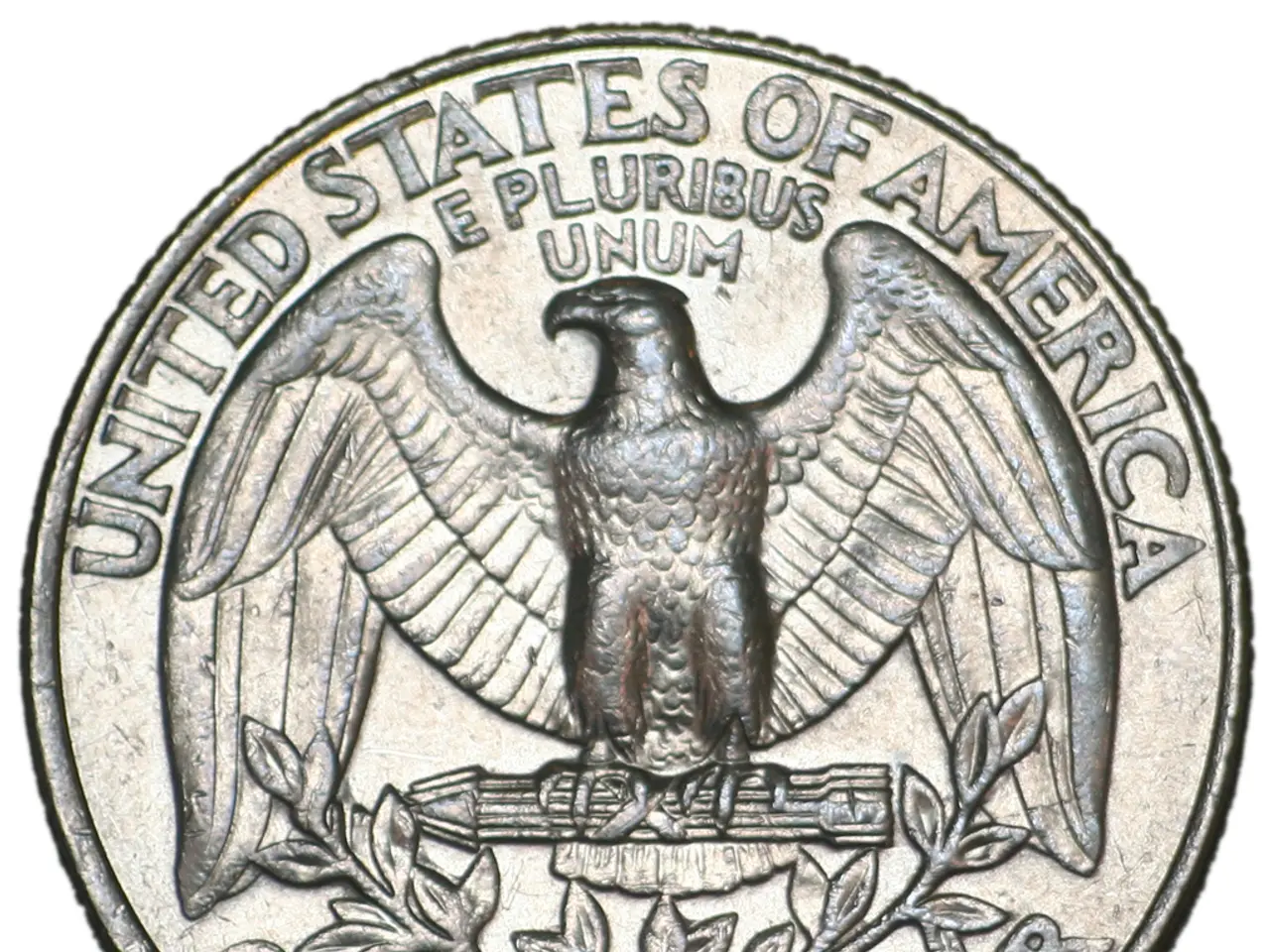Investor enthusiasm in the U.S. wanes temporarily due to tariffs
The impact of tariffs on U.S. institutional investor sentiment has resulted in notable changes over time and shifts in investment strategies, primarily driven by the uncertainty they generate in markets.
### Changes in Optimism Over Time
Initially, tariffs created a wave of uncertainty, causing investors to adopt a cautious approach. However, some investors remained optimistic that tariff-related uncertainties would eventually abate, especially if the domestic economy remained resilient and earnings growth resumed.
Investor confidence has been influenced by the trajectory of trade policy and the economy's ability to withstand ongoing tariff threats. Preliminary trade agreements and favourable court rulings can restore some optimism, although risks remain from possible escalation with major trading partners.
Over time, markets and investors have adapted to tariff regimes, leading to shifts in sentiment. Institutional investors are starting to better understand sector-specific impacts of tariffs, leading to more informed, albeit cautious, investment decisions. Persistent uncertainty, however, often results in investors demanding higher risk premiums for sectors exposed to tariff volatility.
### Shifts in Investment Strategies
In light of the uncertainty and increased volatility from tariffs, institutional investors are shifting towards active management strategies, which allow more dynamic risk management and opportunities to seek returns in conditions where passive strategies may falter.
Institutional investors are also placing greater emphasis on private assets and sustainable investing as part of their repositioning amid tariff-driven market uncertainty. Some market commentators advocate maintaining long exposure but reducing portfolio volatility, reflecting a cautious yet opportunistic stance toward tariff-related risks.
### Economic Impact and Broader Context
Tariffs contribute to uncertainty not only through direct trade costs but also via their economic repercussions, including potential GDP reductions and impacts on business sentiment, which in turn affect investment decisions. Federal Reserve policy, such as maintaining interest rates given tariff-related inflation risks, also influences investor sentiment and strategies.
### A Closer Look at the Survey
KPMG's research, conducted in January, February, and April, revealed a 12-point decline in investor optimism between the first two surveys and the April survey. Despite this decline, 84% of respondents in the April survey were either very optimistic or somewhat optimistic about near-term economic growth.
The survey included investors working in asset management (46%), venture capital (29%), and private equity (25%). Among venture capital respondents, 95% expressed optimism for economic growth beyond 18 months, which was the highest level among all the respondents.
Investors are focusing on domestic companies in industries experiencing less uncertainty due to the current market environment. Four in 10 respondents believe the current economic uncertainty will be limited to six months to a year, while one in four expect it to last more than two years.
According to KPMG officials, the U.S. tariff regime is significantly influencing investment decisions. Tarek Ebeid, a private leader and partner in charge of KPMG US' Northern California audit practice, stated that tariffs are challenging institutional investors to rethink their investment strategies and risk appetite. The Trump administration's goal with tariffs is to bring manufacturing back to the United States, and investors, according to KPMG's research, appear ready to make the shift towards manufacturing in the United States.
In conclusion, U.S. institutional investors respond to tariffs with a dynamic approach: initial caution and volatility expectations lead to strategies favouring active management, private market investments, and sustainability, while optimism fluctuates depending on unfolding trade policies and economic resilience. Over time, investor sentiment shifts toward a more nuanced understanding of tariff impacts, with a persistent premium required for tariff-exposed risks.
- The cautious approach initiated by institutional investors due to tariffs could gradually evolve as they perceive a potential abatement of tariff-related uncertities, especially if the domestic economy remains resilient and earnings growth resumes.
- Institutional investors might demand higher risk premiums for sectors exposed to tariff volatility, as persistent uncertainty often results in such demands.
- In response to tariff-driven market uncertainty, institutional investors are transitioning towards active management strategies, providing opportunities for dynamic risk management and returns in volatile market conditions.
- To adapt to tariff risks and uncertainties, institutional investors are increasingly considering private assets and sustainable investing as part of their repositioning strategies.
- Tariffs can impact the finance sector beyond direct trade costs, influencing investment decisions through potential GDP reductions, repercussions on business sentiment, and alterations in Federal Reserve policies such as interest rates due to tariff-related inflation risks.





